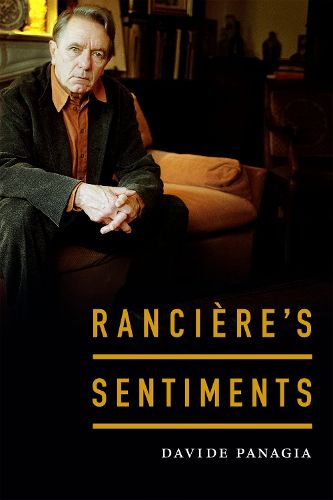Readings Newsletter
Become a Readings Member to make your shopping experience even easier.
Sign in or sign up for free!
You’re not far away from qualifying for FREE standard shipping within Australia
You’ve qualified for FREE standard shipping within Australia
The cart is loading…






In Ranciere’s Sentiments Davide Panagia explores Jacques Ranciere’s aesthetics of politics as it informs his radical democratic theory of participation. Attending to diverse practices of everyday living and doing-of form, style, and scenography-in Ranciere’s writings, Panagia characterizes Ranciere as a sentimental thinker for whom the aesthetic is indistinguishable from the political. Rather than providing prescriptions for political judgment and action, Ranciere focuses on how sensibilities and perceptions constitute dynamic relations between persons and the worlds they create. Panagia traces this approach by examining Ranciere’s modernist sensibilities, his theory of radical mediation, the influence of Gustave Flaubert on Ranciere’s literary voice, and how Ranciere juxtaposes seemingly incompatible objects and phenomena to create moments of sensorial disorientation. The power of Ranciere’s work, Panagia demonstrates, lies in its ability to leave readers with a disjunctive sensibility of the world and what political thinking is and can be.
$9.00 standard shipping within Australia
FREE standard shipping within Australia for orders over $100.00
Express & International shipping calculated at checkout
In Ranciere’s Sentiments Davide Panagia explores Jacques Ranciere’s aesthetics of politics as it informs his radical democratic theory of participation. Attending to diverse practices of everyday living and doing-of form, style, and scenography-in Ranciere’s writings, Panagia characterizes Ranciere as a sentimental thinker for whom the aesthetic is indistinguishable from the political. Rather than providing prescriptions for political judgment and action, Ranciere focuses on how sensibilities and perceptions constitute dynamic relations between persons and the worlds they create. Panagia traces this approach by examining Ranciere’s modernist sensibilities, his theory of radical mediation, the influence of Gustave Flaubert on Ranciere’s literary voice, and how Ranciere juxtaposes seemingly incompatible objects and phenomena to create moments of sensorial disorientation. The power of Ranciere’s work, Panagia demonstrates, lies in its ability to leave readers with a disjunctive sensibility of the world and what political thinking is and can be.